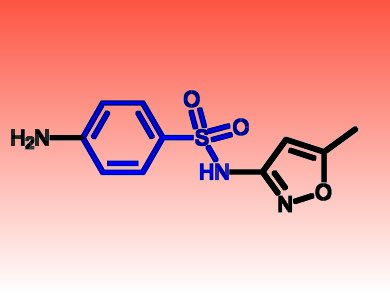Sulfamethoxazole (pictured) is a sulfa drug, namely a synthetic antibiotic that contains a sulfonamide group. At high doses, this compound is used to treat Pneumocystis pneumonia, a serious fungal infection. At elevated dosage, however, sulfamethoxazole elicits neurological side effects such as headache, insomnia, nervousness, and fine tremors.
According to Hirohito Haruki and colleagues, École Polytechnique Fédérale de Lausanne, Switzerland, these adverse events arise from a decreased biosynthesis of L-3,4-dihydroxyphenylalanine (L-DOPA), the precursor of the neurotransmitters dopamine, noradrenaline, and adrenaline. The researchers reveled that, at high does, sulfamethoxazole and other sulfa drugs inhibit the synthesis of tetrahydrobiopterin, the essential cofactor of the enzyme that converts L-tyrosine into L-DOPA (tyrosine hydroxylase). As a consequence, they ultimately lower L-DOPA levels. Based on these findings, L-DOPA might be used as supplement to prevent sulfamethoxazole- induced side effects.
- Tetrahydrobiopterin Biosynthesis as an Off-Target of Sulfa Drugs,
H. Haruki, M. G. Pedersen, K. I. Gorska, F. Pojer, K. Johnsson,
Science 2013, 340 (6135), 987–989.
DOI: 10.1126/science.1232972




